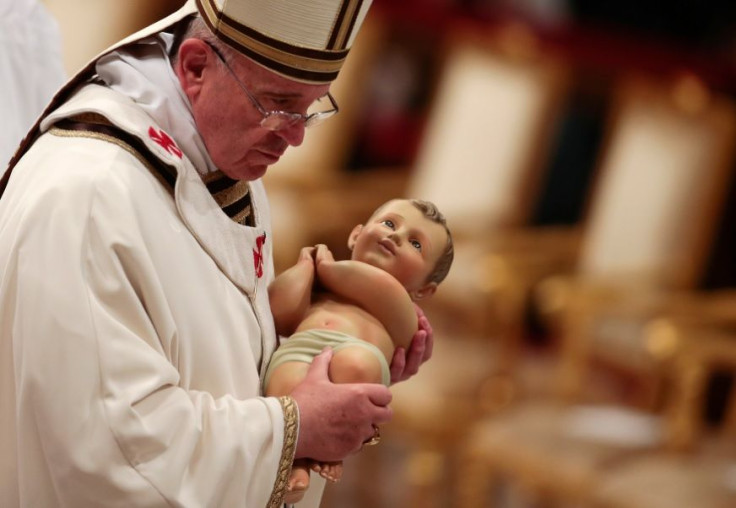Is Christmas A Pagan Holiday? How The Two Religions Might Coincide

Santa Claus, presents, food and winter: These are the things most people associate with Christmas. Paganism, however, is not something that people normally think about while they’re putting lights on their Christmas tree. But then again, what does a tree have to do with the birth of Jesus Christ?
“It’s hard to pick out, in Christmas celebrations, but it’s certainly there," Philip P. Arnold, professor of Religion at Syracuse University in New York, told the International Business Times about paganism's influences in the holiday season. Jesus' birthday was not celebrated on Dec. 25 until 350 A.D. and some maintain it’s too coincidental his birthday would coincide with the pagan winter solstice. The Bible doesn’t give a date for the day Jesus Christ was born. “Most biblical scholars believe Jesus was probably born in the summer, so [his birthday] doesn’t correspond with the winter solstice,” Arnold said. “It was probably shifted by people in the church who wanted to convert people of paganism more into line with these indigenous celebrations."
Legend has it that German priest Martin Luther was inspired to put candles on his Christmas tree after he was inspired by the way starlight illuminated tree branches, but some believe it has pagan roots. Bruce Forbes, professor of religious studies at Morningside College in Iowa, explained to The Christian Post that evergreens were celebrated by pagans because they could endure brutal winters and lights conquered the darkness. Arnold added that the evergreen tree was also popular among early Germans.
Meanwhile, the tradition of giving gifts “has long been practiced” in ceremonies, whether it was the Greeks offering a sacrifice to their Gods or native people exchanging tobacco. “There’s this exchange gift economy that goes on,” Arnold said.
While paganism is sometimes confused for devil worship, pagans consider themselves parishioners of nature. “The cycle of the natural year, with the different emphasis brought by its different seasons, is seen by most Pagans as a model of spiritual growth and renewal, and as a sequence marked by festivals which offer access to different divinities according to their affinity with different times of year,” the Pagan Federation wrote. “Many Pagans see the Earth itself as sacred: in ancient Greece the Earth was always offered the first libation of wine, although She had no priesthood and no temple.”
Follow me on Twitter @mariamzzarella
© Copyright IBTimes 2024. All rights reserved.












